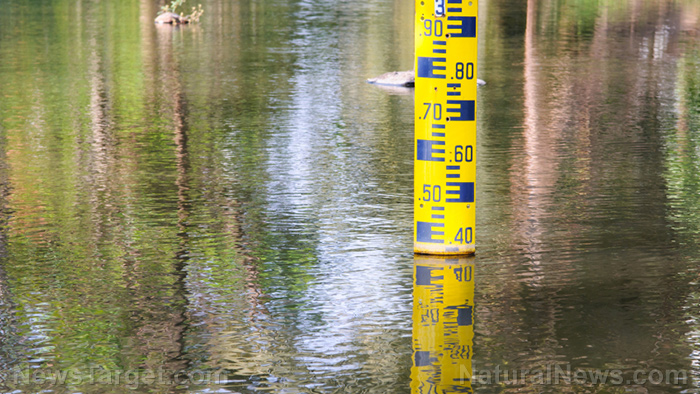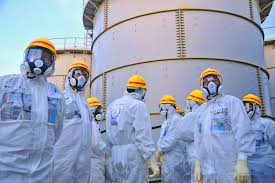
The reservoir is a storage pond at a shut-down phosphate plant that used to manufacture fertilizer. The pond covers 79 acres and holds a mixture of saltwater dredged from Port Manatee, rainwater, stormwater runoff and fertilizer runoff from the phosphate plant.
The reservoir also contains high levels of phosphorus and nitrogen, as well as "stacks" of phosphogypsum. This is a waste product from manufacturing fertilizer that contains radioactive elements, such as radium and uranium. The reservoir has been leaking since late March.
Nevertheless, Florida Gov. Ron DeSantis said on Sunday that the water was not radioactive. Residents and experts alike had raised concerns that wastewater from the leaking reservoir could contaminate sources of clean drinking water in the area.
Wastewater reservoir on brink of collapse
Officials first reported that the reservoir was leaking on Friday, March 26. They found that two to three million gallons of water were flowing from the enormous reservoir per day.
Engineers attempted to plug the leak over the weekend but failed. Upon closer examination of the breach, they found that part of the reservoir's containment wall shifted laterally, which meant structural collapse was possible.
If the structure were to collapse, 600 million gallons of water would come rushing out in just a few minutes. To avoid a possible disaster, staff and personnel working at the site were evacuated, said Jacob Saur, Manatee County's director of public safety. DeSantis also declared a state of emergency on Saturday.
A natural gas plant that supplies energy to millions in the region is also in the flood zone, prompting additional concern. In a jail located a mile from the leaky reservoir, officials are moving inmates to higher floors and placing sandbags on the ground level in preparation for possible severe flooding. Scott Hopes, Manatee County administrator, says the area could be flooded with several feet of water if the reservoir were to collapse.
Hopes had crews pump water out of the reservoir over the weekend. The crews made great progress and Hopes said he believed they will soon be in an even better position once more pumps come in.
As of Sunday, less than 300 million gallons of water remained in the reservoir. Hopes said the risk of a collapse should drop over the next few days. However, the crews could take until this weekend to pump out enough water from the reservoir before officials can rule out a possible collapse.
In a statement, the state's Department of Environmental Protection said the company responsible for the now-defunct phosphate plant, HRK Holdings, would be held accountable for the leak.
Released wastewater poses threat to environment
Wastewater from the leaking reservoir is not expected to be toxic despite its levels of phosphorus, nitrogen and phosphogypsum. But experts say that the sudden infusion of those elements into Tampa Bay could significantly affect the local ecosystem.
For instance, fertilizer runoff and wastewater from septic tanks have caused algal blooms in the past. These are dense layers of algae that cover the surface of the water, preventing light from reaching seagrasses below. Without ample light, seagrasses can die. Seagrasses are a primary food source for manatees.
Algal blooms also usually lead to fish-kill events. Algae produce oxygen through photosynthesis during the day. But they also use oxygen at night, competing with fish and other organisms. Eventually, algal blooms can cause dissolved oxygen concentrations to drop too low for fish, resulting in a die-off. (Related: Freshwater fish species are in “catastrophic” decline, with one-third facing extinction.)
Environ.news has more articles about the effects of wastewater on terrestrial and aquatic environments.
Sources include:
Please contact us for more information.






















